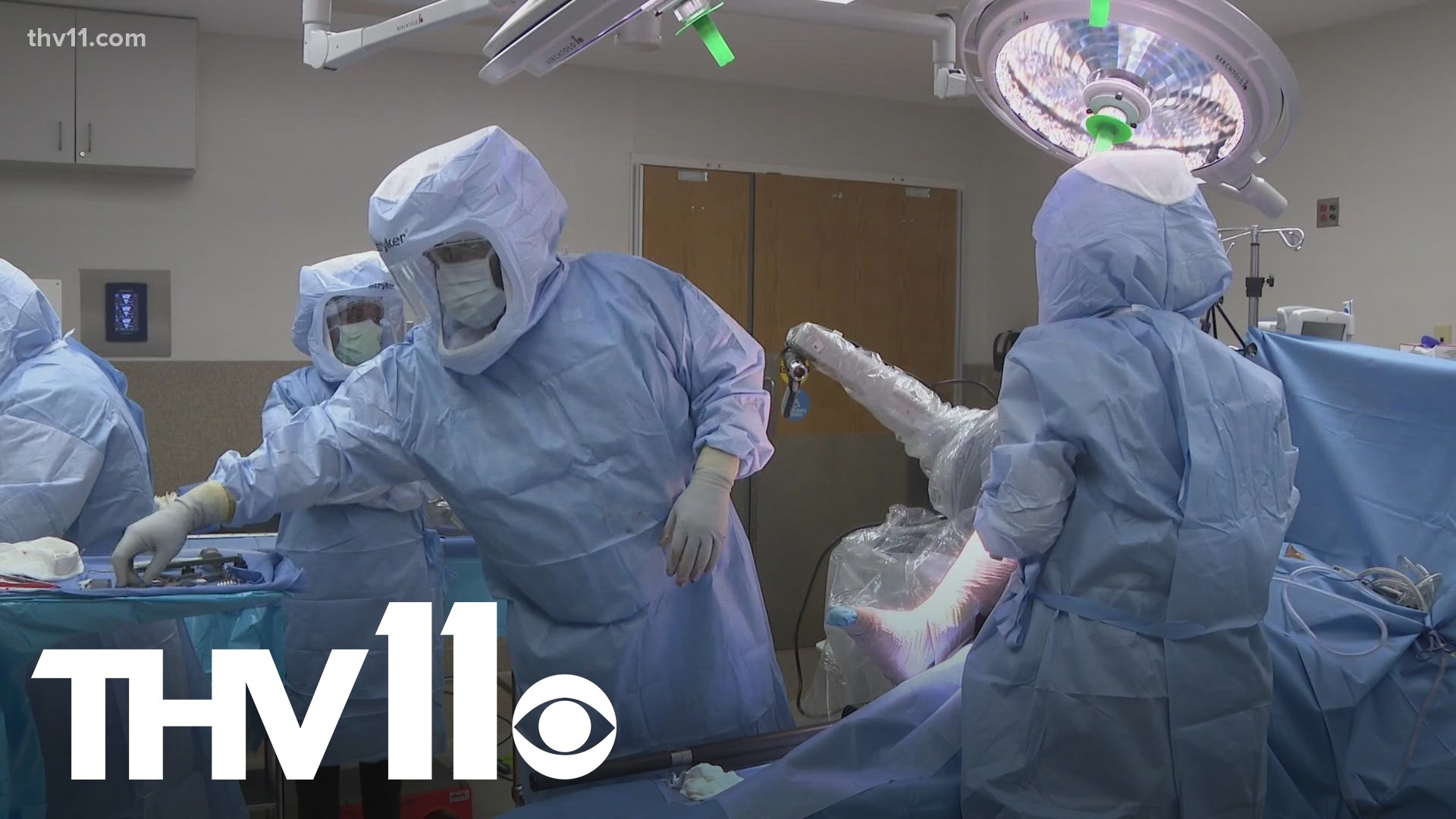PINE BLUFF, Ark. — In order to help improve the safety and effectiveness of surgery, doctors at Jefferson Regional in Pine Bluff are using robots to do so.
The extra help has been a dream come true for Dr. Roy Burrell— an orthopedic surgeon at the hospital who has performed hundreds of knee replacement surgeries over the last eight years.
He shared that he considers the Stryker Mako Robotic Arm to be his new chief assistant.
"When we are doing surgery, there's always potential for something to happen, but the robot kind of keeps you in line and helps prevent those," Dr. Burrell said.
We were able to witness a knee replacement surgery and get a closer look at how the robot works.
Dr. Burrell explained that the point of the surgery is to make sure the knee can bend and extend properly.
"That sometimes deals with removing [and] taking down tissue and stripping tissue," Dr. Burrell added.
The machine shows a color-coded and 3D model of the patient's knee, which allows Dr. Burrell to make careful adjustments. This can sometimes avoid a tedious process.
He said that a big misconception is that he has no control, and explained how the robots are just another tool so he and any other surgeon can have a more precise cut.
"Traditionally, the instrumentation that we'll use is for everyone. But, this right here, we can dial it in a little more," Dr. Burrell described.
The robotic arm uses information from a patient's CT scan to help better guide the surgeon during the operation.
"A lot of general surgeons are like I wish I had three hands," General Surgeon, Dr. Michelle Eckert said.
She explained that she uses another machine known as Davinci for gallbladder and hernia surgeries. She also said she trained for months before using the robot on a patient.
"To learn how to move the robot, how to move instruments [and] get really good at learning to use your eyes," Dr. Eckert explained.
Though she admits she was resistant to the idea at first, she eventually realized the tool minimizes the number of cuts and speeds up the healing process for a patient.
"As one of the older surgeons here now, it's going to help me in the long run," Dr. Eckert said.
The price tag for the Davinci robot like the one Dr. Eckert uses is around $3 million— and over the next few years, the hospital is looking to add more machines and get more doctors certified to use them.

